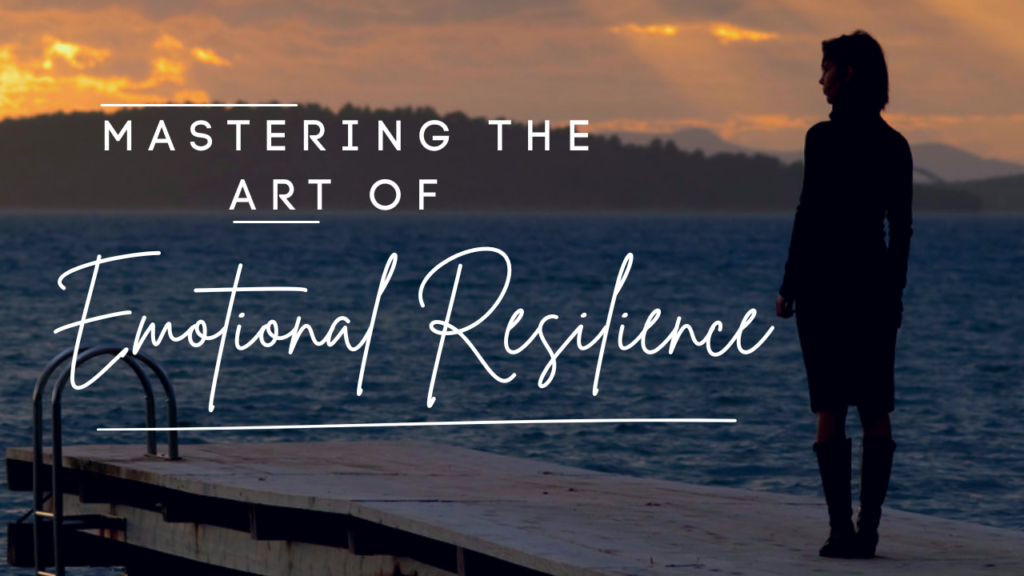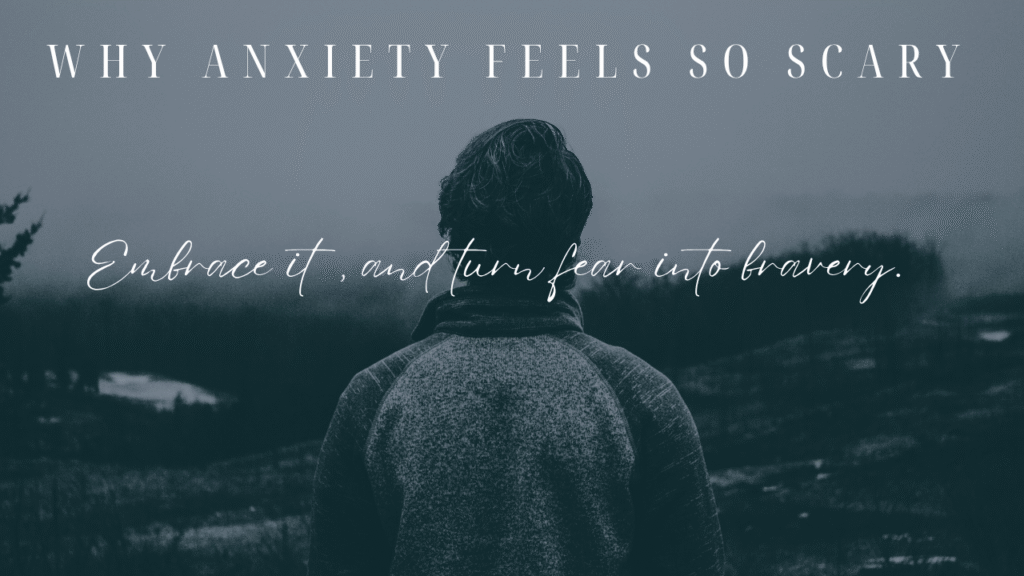Some people bounce back like rubber bands. They get hit, they wobble, and then they’re back on their feet like nothing happened. Others get knocked down and stay there, winded and wondering what just happened.
The difference isn’t toughness. It’s not pretending like things don’t hurt. It’s not slapping a smile on pain or pushing through like some emotionless robot.
It’s resilience. Emotional resilience.
And it’s not something you’re born with. It’s something you build.
It doesn’t happen overnight. It’s not a quick fix. But it is possible. And right now—more than ever—we need it.
Because life doesn’t play fair. It throws curveballs when you least expect them. Loss. Rejection. Burnout. Breakdowns. Sudden change. And if you don’t know how to stand back up—not just physically, but emotionally—those hits start to shape you. They make you bitter instead of better. Hard instead of wise. Numb instead of strong.
Resilience isn’t about not feeling pain. It’s about not being ruled by it.
So how do you build that?
Feel It, Don’t Feed It
First things first: stop pretending like you’re fine when you’re not.
Resilience doesn’t mean emotional denial. It doesn’t mean swallowing everything so you can “be strong.” That’s not strength—that’s suppression. And suppressed pain has a way of leaking out eventually. Usually in sarcasm, withdrawal, short tempers, or anxiety.
You can’t heal what you won’t face.
So feel it. Name it. Say it out loud, even if your voice shakes. Write it down. Pray it raw. Let it be messy for a minute.
But don’t build a house there.
Feel it. Don’t feed it.
Don’t let every emotion grow into a story about who you are or how the world works. Don’t rehearse every hurt until it becomes your identity. Acknowledge it, process it, then let it pass through—not define you.
You are not your breakdown. You are not your worst day. You’re allowed to feel it. But you don’t have to live there.
Know What Grounds You
When life spins, what do you grab onto?
What’s your anchor?
Because emotional resilience depends on knowing what steadies you when everything else shakes.
For some, it’s routine—simple habits that don’t change no matter what the day throws at them. For others, it’s Scripture. A verse that gets whispered when fear starts shouting. A truth that cuts through the noise.
For you, it might be journaling. Going for a walk. Talking to someone safe. Prayer. Silence. Music. A deep breath that reminds you you’re still here.
The point isn’t what it is. The point is that you have it.
You can’t stay resilient if you don’t know how to come back to center.
So figure out what grounds you. And return to it often. Even when things are good. Especially when they’re not.
Stop Trying to Control Everything
A lot of emotional exhaustion comes from one thing: trying to manage stuff that’s not yours to manage.
You overthink. You try to predict outcomes. You obsess over what they meant, what could go wrong, how it might fall apart. And that internal spin cycle keeps you on edge even when nothing’s actually happening yet.
Resilience doesn’t come from controlling more.
It comes from releasing what you were never meant to carry.
You don’t need to have all the answers. You don’t need to fix every person or prevent every mistake or anticipate every scenario.
That’s not strength. That’s fear in disguise.
And fear is a terrible leader.
You build resilience when you learn to live with uncertainty—and stay grounded anyway.
Not because you’re indifferent. But because you’ve learned to trust deeper than your ability to control.
Choose Your Response Before the Moment Hits
One of the best things you can do for your emotional health is decide ahead of time who you want to be when things go wrong.
Because in the heat of the moment, you’re going to default to whatever you’ve rehearsed.
If you’ve trained yourself to panic, you’ll panic.
If you’ve trained yourself to blame, you’ll blame.
But if you’ve trained yourself to pause—to breathe, to wait, to pray, to respond instead of react—you give yourself space to stay anchored when the storm hits.
You don’t rise to the occasion. You fall to the level of your preparation.
So prepare.
Not by trying to avoid the storm, but by strengthening your foundation before it comes.
That’s resilience.
Let God Shape What the Pain Didn’t Destroy
This is where it gets holy.
There are parts of you that only grow after something breaks. There are depths of compassion, strength, empathy, and wisdom that only show up when life doesn’t go how you planned.
Resilience isn’t just about surviving pain. It’s about being shaped by it.
Not in bitterness. But in grace.
Not in hardness. But in depth.
God doesn’t waste suffering. If you let Him, He’ll use it—not just to heal you, but to grow you. To teach you how to carry peace in chaos. To show others how to stand. To deepen your capacity to love, to lead, to keep going even when it’s hard.
That’s the kind of strength no one can take from you.
That’s resilience.
And it’s worth building.
Not so you can become bulletproof.
But so you can become someone who keeps showing up—with peace, with purpose, with something steady in your spirit that says, “I’ve been through worse. I’m not going under. I know Who holds me.”
That’s the real thing.
And it’s in you—if you’re willing to build it.



